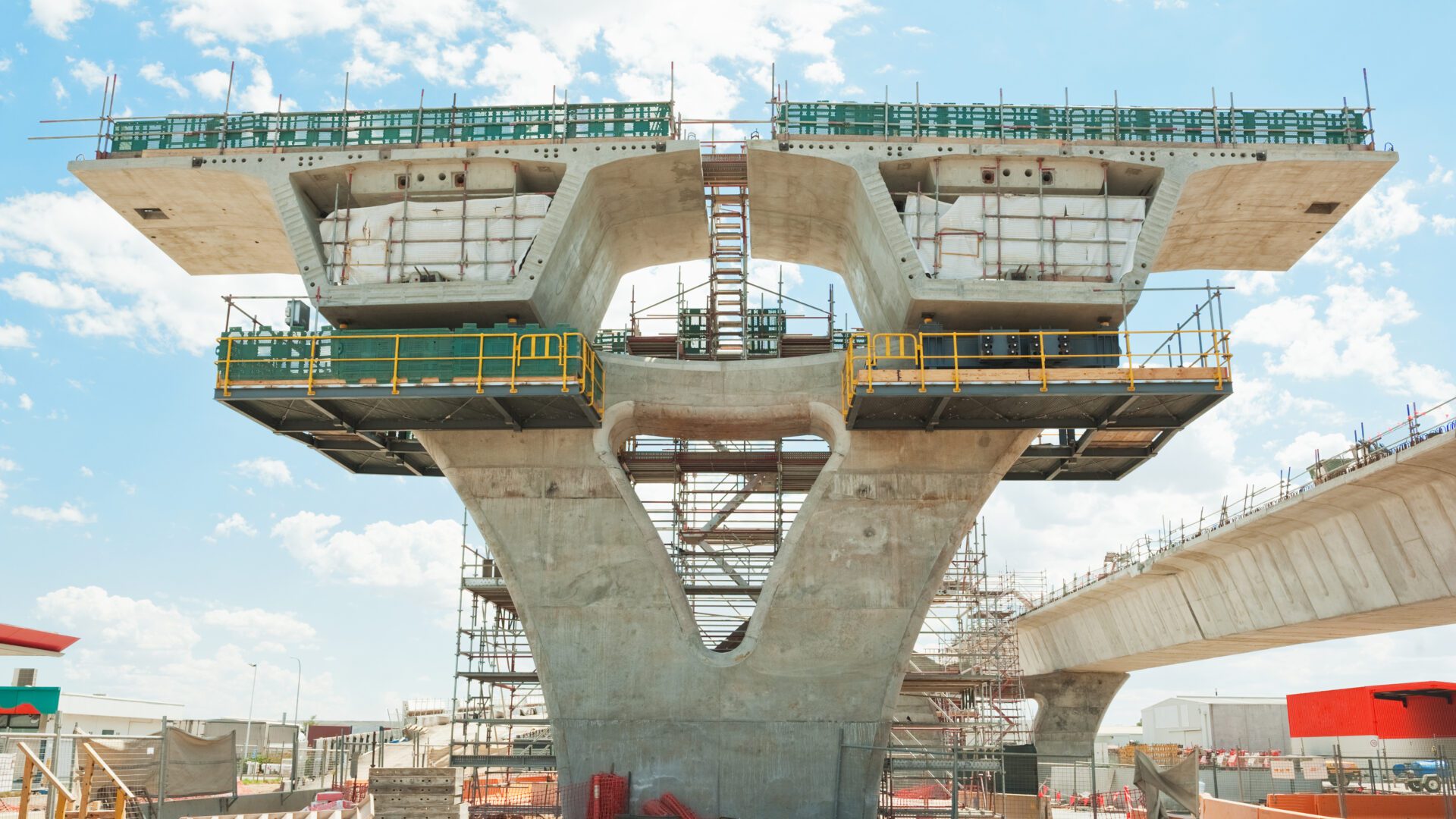If you think about your latest work commute, you probably drove or cycled past at least one construction project. In WA for instance, recent construction projects include the Metronet train line, the Albany Ring Road, the Women and Babies Hospital, and the WACA cricket ground.
At the helm of all these projects is a construction manager.
What do constructions managers do?
Nathan Moore, a third-year Construction Management student at Curtin, explains the role succinctly:
“Construction managers are responsible for the successful delivery of construction projects. They help organise and supervise many different people to ensure progress, safety, quality and profitability during the building process,” he says.

You could think of a construction manager like a film director or music conductor; they coordinate the scores of people it takes to create something at scale – and create it in the right way, at the right time and at the right cost.
If you, like Nathan, “enjoy making things and working with people”, you could build yourself a successful career in construction management, starting with a Bachelor of Applied Science (Construction Management) from Curtin.
Construction manager job snapshot
What they do: Supervise the construction of buildings and infrastructure from start to finish and manage daily construction activities.
Top skills they need: Technical (knowledge of construction methods, materials and equipment), communication, analytical and problem solving, planning and scheduling, financial acumen, safety compliance.
Where they work: A blend of office and site work.
Annual salary in WA: $205–225K (Seek).

How to become a construction manager
1. Study a degree in construction management
Construction management is a demanding job, so while you don’t always need a degree to work as one, it gives you the skill level you need to perform well in the role. A degree is typically required if you want to undertake more senior or complex roles in construction management.
Dr Vasilios Papastamoulis is the course lead of the Bachelor of Applied Science (Construction Management) at Curtin. He says the program readily prepares students for careers in construction management through its industry-relevant course content and work experience.

“One of the key strengths of our program is its high-quality curriculum, which is closely aligned with current industry practices. This alignment is achieved through close collaboration with our industry partners, including the Australian Institute of Building, the Australian Institute of Quality Surveyors and the Chartered Institute of Building,” he explains.
In the construction management course, students can expect to learn:
Technical skills
- construction methodologies
- properties of building materials
- green technologies
- sustainable construction practices
- digital technologies e.g. Building Information Modelling (BIM), Virtual Design and Construction (VDC), 4D Scheduling, 5D BIM, digital twins etc.
- scheduling and cost estimating
- contract administration and management
- safety and quality in construction
- risk control (on-site and across the supply chain).
Soft skills
- communication and leadership
- analytical and problem-solving
- time management
- stakeholder management
- emotional intelligence.
2. Get industry experience
Undoubtedly, gaining practical experience in construction management is the best way to see if the job is for you.
“Usually, students obtain entry-level industry experience while they’re still studying, such as coordinating and supervising daily construction tasks, communicating with subcontractors, ensuring safety on site, writing reports or even working as labour for building/renovation firms,” Papastamoulis explains.
“Understanding all levels of the construction management process is essential for effective on-site supervision.”
He says by the time students are in their fourth year, they’ve got the skills to undertake higher roles with competence.

Nathan Moore started working with a Perth-based residential construction company in the first year of his course. He says the work has enabled him to grow and test his abilities.
“It’s given me great insight into the inner workings of construction companies and given me practical experience with systems, tools and processes we don’t have at uni,” he says.
“Ultimately it has helped me to decide what role I would like to do when I finish my degree.”
3. Level up your career in construction management
Papastamoulis says once graduates have worked in intermediary roles for three to five years, they can progress to senior roles like site manager, project manager, contract administrator, cost manager, or health and safety manager, depending on the type of project and size of the company.
“After that, they can lead large-scale projects and coordinate multi-disciplinary teams as construction managers and CEO or CFO, either for private construction firms or the government.”
What’s the difference between construction management and project management?
Construction management and project management may sound like similar roles, but they have distinct differences.
“The construction management course is a four-year undergraduate honours degree (AQF Level 8), open to high-school graduates or university-ready students, whereas the project management program is a postgraduate course (AQF Level 9) – strictly for graduates and professionals,” Papastamoulis explains.
He says that project management applies across various fields including construction, but also business, commerce, law and healthcare. In contrast, construction management is specifically tailored to building, property and infrastructure industries.
Papastamoulis also mentions that project management involves overseeing projects from inception to completion, with a focus on overall goals, while “construction management focuses on the execution of the construction phase and management of daily on-site construction activities.”
However, professionals from both industries must have strong leadership, team management and communication skills; in other words, a high level of emotional intelligence (EQ).
“In construction, where teams often comprise individuals from varied cultural backgrounds, high EQ fosters empathy, enhances communication and aids in conflict resolution, thereby promoting a harmonious, inclusive and productive work environment,” Papastamoulis says.

Building resilience
Overseeing the construction of essential buildings and infrastructure like hospitals, freeways and people’s homes is no mean feat. Consequently, construction management can be a stressful career. But for Nathan, it’s the high stakes nature of the work that makes it so interesting.
“This job will appeal to people who like a challenge and are driven to learn. Every project is different and will require you to learn new skills, solve many problems, improvise and overcome setbacks,” he says.
“The fact that every day has unique challenges is exciting and keeps the job fresh and rewarding.”
Papastamoulis advises that Curtin’s construction management course prepares students to manage the demands of the profession, including how to identify and mitigate safety risks arising from stress.
“Students actively practise stress management techniques through various construction simulation scenarios,” he says.
“The program also emphasises time management skills, challenging students to balance multiple assignments and deadlines throughout their studies.”
Modelling your future in construction management
Construction management is a challenging yet rewarding career that offers diverse work in an essential industry. As nations around the world continue to face sustainability challenges such as population growth, energy efficiency and the circular economy, construction management will play an increasingly vital role in shaping solutions for Australia.
If you’re an aspiring construction manager, Nathan says by keeping an open mind and seizing experience opportunities, the world is your work site.
“The roles I started off thinking I would never want to do ended up being the ones I enjoyed most and are where I’m now taking my career!”
